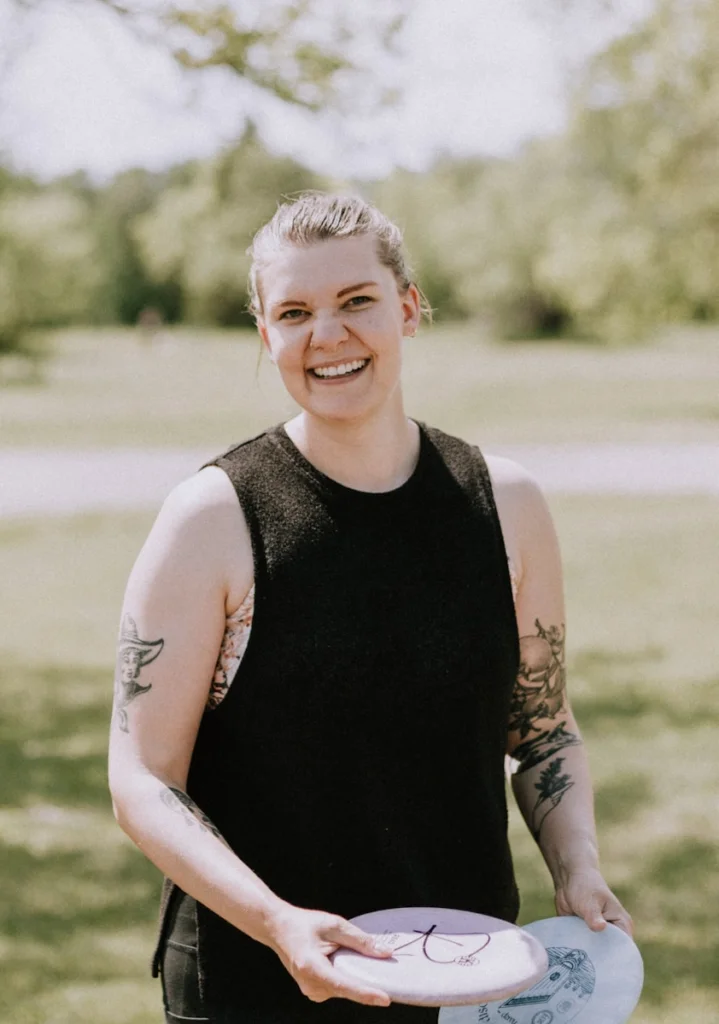
You’re exhausted, stressed, and convinced self-care requires money you don’t have. I can tell you that’s completely wrong. After years of helping people navigate tight budgets, I’ve discovered that the most powerful self-care practices cost absolutely nothing. You don’t need expensive spa treatments or costly gym memberships to transform your mental health and energy levels. The nineteen strategies I’m about to share will prove that taking care of yourself is possible, even when every dollar counts.
Create a Daily Meditation Practice Using Free Apps
When money’s tight and stress levels are through the roof, meditation becomes one of your most powerful tools for maintaining mental health without spending a dime. I can tell you from experience, apps like Headspace, Calm, and Insight Timer offer completely free sessions that’ll change your entire day. Start with just five minutes each morning before checking your phone – this simple shift puts you in control instead of letting anxiety drive.
I’ve never seen anything work faster for financial stress than consistent meditation practice. Download three apps tonight, test them tomorrow, then stick with whichever voice resonates most. The guided breathing exercises will lower your cortisol levels, sharpen your decision-making, and give you the mental clarity needed to tackle money challenges head-on. This intention setting practice transforms scattered energy into focused calm, helping you approach financial decisions with clarity rather than panic.
Take Advantage of Free Community Resources and Events

Your neighborhood holds a treasure trove of free activities and resources that most people completely overlook, yet these hidden gems can transform your social life, mental health, and even skill development without touching your budget. I can tell you from experience that community centers, libraries, and local organizations offer more than you’d imagine.
Start exploring these power moves:
- Library workshops and events – Free computer classes, book clubs, financial literacy seminars, and creative workshops
- Community center programs – Fitness classes, support groups, job training sessions, and social gatherings
- Local park activities – Outdoor yoga, walking groups, seasonal festivals, and educational nature programs
I’ve never seen anyone regret diving into their community resources. These connections don’t just save money, they build networks that can change your entire trajectory. Many communities also organize charity runs and neighborhood clean-up events where you can give back while staying active and meeting like-minded people who share your values.
Establish a Consistent Sleep Schedule Without Spending Money
Building those community connections sets you up perfectly for another free self-care win that impacts everything else in your life. Your sleep schedule doesn’t cost a dime, but I can tell you it’s worth more than any expensive wellness program.
Set a firm bedtime and wake time, even on weekends. Your body craves consistency, and I’ve never seen someone regret having steady energy levels. Turn off screens one hour before bed—use that phone’s free airplane mode. Make your bedroom as dark as possible using blankets over windows if needed.
Create a wind-down routine: stretch, write three things you’re grateful for, or practice deep breathing. These cost nothing but signal your brain it’s time to rest. Within 30 minutes of waking up, expose your eyes to natural light by stepping outside or sitting near a window to help regulate your circadian rhythm. Quality sleep amplifies every other self-care effort you make.
Practice Deep Breathing Exercises Throughout Your Day
Since breathing happens automatically, most people never realize they’re sitting on the most powerful stress-relief tool that exists. I can tell you from experience, when money’s tight and stress peaks, your breath becomes your lifeline to sanity.
You don’t need apps, classes, or equipment. Here’s what actually works:
- 4-7-8 technique: Inhale for 4 counts, hold for 7, exhale for 8
- Box breathing: Inhale 4, hold 4, exhale 4, hold 4
- Belly breathing: Place one hand on chest, one on stomach, breathe so only the bottom hand moves
I’ve never seen anything calm financial anxiety faster than deliberate breathing. Do this during commutes, work breaks, or before bed. Your nervous system can’t distinguish between real danger and money stress, but controlled breathing signals safety immediately.
These mindful activities promote inner peace and clarity without costing anything, making them perfect for creating moments of tranquility even when finances are stretched thin.
Start a Gratitude Journal Using Materials You Already Have
When you’re stuck in survival mode, gratitude feels like a luxury you can’t afford, but I’ve learned it’s actually the cheapest therapy available. Grab that notebook collecting dust, use the back of old receipts, or open your phone’s notes app. I can tell you from experience, writing down three things daily shifts your mental state faster than anything else.
Start small. Write “I had clean water today” or “My car started this morning.” These aren’t Instagram-worthy moments, but they’re real victories. I’ve never seen anyone regret tracking their wins, no matter how tiny. The power comes from rewiring your brain to spot opportunities instead of obstacles. Your materials don’t matter, your consistency does. This practice costs nothing but transforms everything. Research shows that regular gratitude journaling can improve sleep quality while also strengthening your immune system.
Explore Nature Through Free Outdoor Activities

Nature offers the most reliable escape route from financial stress, and it doesn’t charge admission. You’ve got power at your fingertips when you step outside, and I can tell you that fresh air works better than any expensive therapy session.
Take walking meditation seriously – Find a quiet trail, focus on your breathing, let your mind reset completely
Create photography adventures with your phone – Hunt for interesting shots, document seasonal changes, build your artistic eye
Practice outdoor yoga using free apps – Stretch on grass, breathe deeply, connect your body with natural rhythms
Try birdwatching to observe different species while enjoying the peaceful sounds of nature around you.
I’ve never seen anyone return from nature time feeling worse than when they left. You’ll discover that trees, water, and open sky provide healing that money simply can’t buy.
Build a Home Workout Routine Using Bodyweight Exercises
Your living room holds everything you need for a complete fitness transformation, and I can tell you that bodyweight exercises deliver results that rival any expensive gym membership. I’ve never seen anyone regret building strength through push-ups, squats, and planks because these movements target multiple muscle groups simultaneously.
Start with three exercises you can do anywhere: push-ups for upper body power, squats for leg strength, and planks for core stability. Begin with two sets of eight repetitions each, then gradually increase as you build endurance. I can tell you that consistency trumps intensity every time.
Schedule fifteen minutes daily, preferably at the same time. Your body craves routine, and I’ve watched people transform their energy levels within weeks using nothing but floor space and determination. Enhance your routine with quality exercise mats from affordable retailers like Amazon or Decathlon to provide cushioning and grip for your floor exercises.
Connect With Friends and Family Through Low-Cost Social Activities
How can you nurture meaningful relationships without draining your wallet or sacrificing connection quality? I can tell you from experience that the strongest bonds aren’t built through expensive outings, they’re forged through intentional time together.
You’ll discover these budget-friendly activities create deeper connections:
- Host potluck dinners where everyone contributes one dish, turning meal costs into shared experiences
- Organize nature walks or hiking adventures that cost nothing but deliver hours of conversation and fresh air
- Start game nights using cards, board games, or free mobile apps that spark laughter and friendly competition
I’ve never seen relationships suffer when you choose creativity over cash. Your friends and family want your presence, not your presents. These activities actually strengthen bonds because they focus on genuine interaction rather than expensive distractions.
Consider planning a surprise picnic with friends where everyone brings homemade snacks and you spend the afternoon sharing stories under the open sky.
Develop Creative Hobbies Using Household Items
When creativity meets necessity, magic happens in the most unexpected places around your home. I can tell you that some of my most fulfilling hobbies started with random items sitting in drawers and closets.
Transform cardboard boxes into storage organizers, photo frames, or miniature furniture. Old magazines become collage masterpieces, while empty jars turn into painted vases or herb planters. You’ll discover that bottle caps make perfect paint palettes, and newspaper becomes wrapping paper with personality.
I’ve never seen anyone regret learning to repurpose what they already own. String from packages becomes macramé projects, fabric scraps become quilting squares, and expired spices create natural dyes. These activities don’t just save money, they build confidence and skills that’ll serve you for life.
Learning just four simple knots can transform any rope or string lying around your house into beautiful wall art that rivals expensive store-bought decorations.
Practice Mindful Eating With Foods You Already Purchase
While expensive superfoods grab headlines, mindful eating transforms whatever groceries you’re already buying into a powerful self-care practice.
Mindful eating turns your everyday meals into meaningful self-care without spending extra money on trendy ingredients.
I can tell you that slowing down during meals creates more satisfaction than rushing through expensive organic options. You’re taking control when you focus on what’s already in your kitchen.
Here’s how to practice mindful eating on your current budget:
- Eliminate distractions – Turn off screens, put down your phone, and actually taste your food
- Chew slowly – Count 20-30 chews per bite to improve digestion and increase fullness
- Notice textures and flavors – Pay attention to temperature, crunch, sweetness in regular foods you’ve been eating mindlessly
Simple ingredients like overnight oats with whatever berries you have on hand can become a satisfying breakfast when you eat slowly and pay attention to the creamy texture and natural sweetness.
I’ve never seen anyone regret eating more intentionally. This practice costs nothing but transforms your relationship with food completely.
Create a Calming Environment in Your Living Space
Since your home serves as your primary sanctuary, transforming it into a calming space doesn’t require expensive renovations or designer furniture. I can tell you that decluttering costs nothing, yet it’s the most powerful change you’ll make. Clear surfaces create mental clarity, and removing items you don’t need opens up energy flow.
Rearrange what you already own to maximize natural light, move furniture away from windows, open curtains wide. I’ve never seen anyone regret bringing more sunlight indoors. Use existing blankets and pillows to create cozy reading corners. Designate specific areas for relaxation only, even if it’s just one chair where phones aren’t allowed. Small changes compound into significant transformation when you’re intentional about creating peace.
Establish Boundaries Between Work and Personal Time
Blurred lines between work and personal time will drain your energy faster than any demanding boss ever could. I can tell you from experience, protecting your off-hours isn’t selfish—it’s survival. When you’re living paycheck to paycheck, you might think you need every opportunity, but burnout costs more than missed overtime.
Protecting your off-hours isn’t selfish—it’s survival when burnout costs more than any missed paycheck.
Your future self depends on boundaries you set today.
- Turn off work notifications after 6 PM – Your phone doesn’t control you
- Designate one room as work-free – Even in small spaces, claim sanctuary
- Practice the “hard stop” rule – When work time ends, physically step away
I’ve never seen anyone regret protecting their personal time, but I’ve watched countless people destroy their health by failing to disconnect.
Learn New Skills Through Free Online Resources

After you’ve carved out that personal time, the question becomes what to do with it that actually moves your life forward. I can tell you from experience, learning new skills is your fastest path to breaking the paycheck-to-paycheck cycle.
Start with YouTube University – it’s completely free and covers everything from coding to graphic design. Coursera offers financial aid for their courses, while Khan Academy teaches business fundamentals that’ll give you an edge. I’ve never seen anyone regret learning Excel formulas, basic HTML, or project management skills.
Pick one skill that directly connects to better-paying opportunities in your field. Dedicate just 30 minutes daily, and you’ll be surprised how quickly you progress. Knowledge is power, and power translates to options.
Practice Progressive Muscle Relaxation Techniques
When your shoulders carry the weight of unpaid bills and your jaw stays clenched from constant worry, progressive muscle relaxation becomes your secret weapon against financial stress. I can tell you from experience, this technique costs nothing but delivers massive relief when money’s tight.
You’ll systematically tense and release muscle groups, starting with your toes and working upward. I’ve never seen anything work faster for breaking the physical tension that poverty creates in your body.
Here’s your power sequence:
- Clench each muscle group for 5 seconds – feet, calves, thighs, abdomen, hands, arms, shoulders, face
- Release suddenly and breathe deeply – feel the contrast between tension and relaxation
- Hold the relaxed state for 10 seconds before moving to the next area
This fifteen-minute investment transforms your stress response.
Maintain Personal Hygiene as a Form of Self-Respect
While financial stress can make you feel invisible to the world, maintaining your personal hygiene becomes a daily declaration that you matter. I can tell you from experience, when money’s tight, it’s tempting to skip basic care routines, but this creates a dangerous spiral that erodes your confidence.
Start with fundamentals you can control: brush your teeth twice daily, wash your face, keep your nails clean. These cost pennies but project power. I’ve never seen anyone regret taking that extra five minutes for grooming, even during their toughest financial periods.
Use dollar store soap, generic toothpaste, whatever works within your budget. The brand doesn’t matter – the consistency does. When you look in the mirror and see someone who cares for themselves, you’re sending a message to your subconscious: you’re worth the effort.
Volunteer Your Time to Help Others in Your Community
Taking care of yourself extends beyond personal grooming – it includes nurturing your sense of purpose and connection to others. Volunteering transforms your financial struggles into perspective, power, and renewed energy. I can tell you that helping others creates a mental shift that’s impossible to replicate through spending money.
When you’re broke, volunteering offers three essential benefits:
- Builds valuable networks that can lead to job opportunities and professional connections
- Develops marketable skills like leadership, communication, and project management without paying for courses
- Provides emotional fulfillment that combats the isolation and depression that financial stress creates
I’ve never seen anyone regret giving their time to causes they believe in. Food banks, animal shelters, and community centers always need help, and they’ll work around your schedule.
Listen to Uplifting Music and Create Mood-Boosting Playlists
Music costs nothing to stream on free platforms, yet it delivers one of the most powerful mood transformations available to anyone living on a tight budget. I can tell you that creating intentional playlists changes everything about your mental state, and I’ve never seen anything work faster when you’re drowning in financial stress.
Start building different playlists for specific moods you need to create. Make an “Energy Boost” list with upbeat songs that get your blood pumping, a “Calm Focus” collection for when bills overwhelm you, and a “Confidence Builder” playlist filled with empowering tracks. You control the soundtrack to your life, which means you control how you feel throughout each challenging day. This isn’t just entertainment—it’s strategic emotional management.
Declutter and Organize Your Space for Mental Clarity
Since your environment directly impacts your mental state, decluttering your living space becomes one of the most effective free methods for reducing anxiety and creating calm. I can tell you from experience that a chaotic space creates mental chaos, while organized surroundings give you power over your circumstances.
Start with these strategic areas:
- Your bedroom – Clear surfaces, make your bed daily, and remove items that don’t belong
- Kitchen counters – Keep only daily essentials visible to reduce visual overwhelm
- One drawer or closet – Tackle small spaces first to build momentum and confidence
I’ve never seen someone regret decluttering their space. You’ll immediately notice improved focus, reduced stress, and increased motivation. When everything has a place, you reclaim control over your environment and mindset.
Schedule Regular Check-Ins With Your Mental and Physical Health
While most people think regular health check-ins require expensive doctor visits, you can monitor your wellbeing effectively at home with simple, consistent self-assessments.
I can tell you that weekly mental health check-ins changed everything for me. Set a recurring phone reminder, then honestly assess your stress levels, sleep quality, and emotional state. Rate each area from one to ten, track patterns in a simple notebook.
For physical health, monitor your energy levels, appetite changes, and any persistent aches. I’ve never seen someone regret catching health issues early through self-awareness.
Create a monthly review where you examine these patterns. Notice what triggers your worst weeks, identify what supports your best ones. This isn’t about perfection—it’s about taking control of your health destiny.
Conclusion
You don’t need deep pockets to take care of yourself—you need smart choices and consistency. I can tell you from experience, these free and low-cost strategies work when you commit to them daily. Start with one or two ideas that resonate most, then gradually add others. Your mental and physical health can’t wait for better financial times, so take action today with what you’ve got.





Leave a Reply